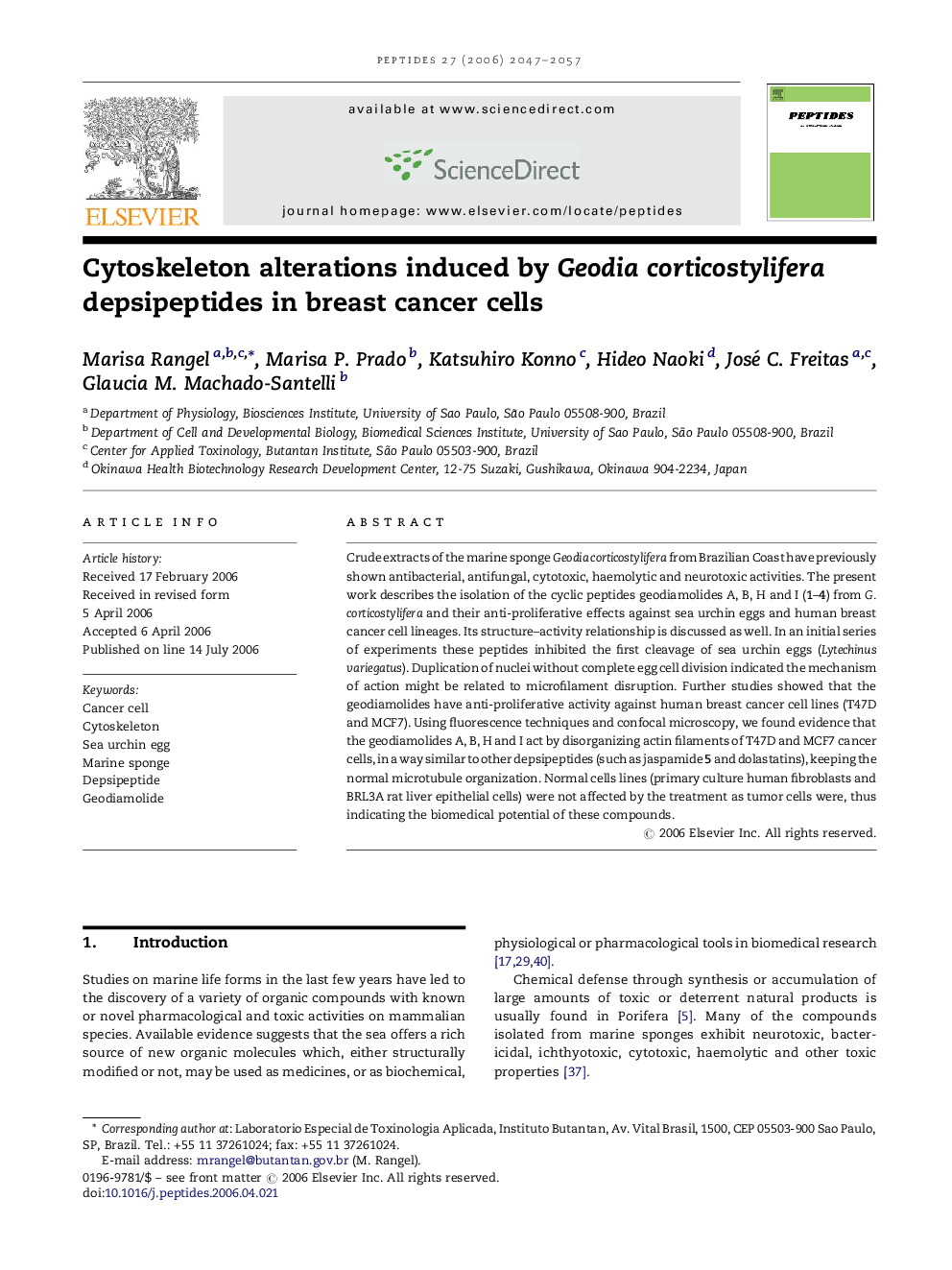| Article ID | Journal | Published Year | Pages | File Type |
|---|---|---|---|---|
| 2007945 | Peptides | 2006 | 11 Pages |
Crude extracts of the marine sponge Geodia corticostylifera from Brazilian Coast have previously shown antibacterial, antifungal, cytotoxic, haemolytic and neurotoxic activities. The present work describes the isolation of the cyclic peptides geodiamolides A, B, H and I (1–4) from G. corticostylifera and their anti-proliferative effects against sea urchin eggs and human breast cancer cell lineages. Its structure–activity relationship is discussed as well. In an initial series of experiments these peptides inhibited the first cleavage of sea urchin eggs (Lytechinus variegatus). Duplication of nuclei without complete egg cell division indicated the mechanism of action might be related to microfilament disruption. Further studies showed that the geodiamolides have anti-proliferative activity against human breast cancer cell lines (T47D and MCF7). Using fluorescence techniques and confocal microscopy, we found evidence that the geodiamolides A, B, H and I act by disorganizing actin filaments of T47D and MCF7 cancer cells, in a way similar to other depsipeptides (such as jaspamide 5 and dolastatins), keeping the normal microtubule organization. Normal cells lines (primary culture human fibroblasts and BRL3A rat liver epithelial cells) were not affected by the treatment as tumor cells were, thus indicating the biomedical potential of these compounds.
